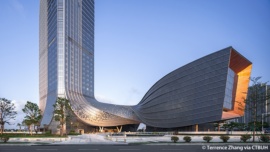The larger local gaming market in the Philippines makes its integrated resort business less dependent on Chinese visitations when compared to Macau and South Korea, the CEO of Philippine gaming operator Bloomberry Resorts Corporation, Enrique Razon, stated in an interview with broadcaster CNBC.
“We’ve a big local market unlike Macau. Around 55 per cent [of Bloomberry’s gaming revenue] comes from overseas and 45 per cent comes from locals,” said Mr. Razon.
The Bloomberry CEO also added that the Philippines gaming market has seen “tremendous” growth in Chinese visitation since Philippine President Rodrigo Duterte’s administration lifted some of the country’s travel restrictions.
A strong local market is also what makes the prospective Japanese gaming market “very attractive”, while South Korea’s policies blocking locals from gambling have led its market to be too dependent on Chinese visitations, which have currently “slowed down” due to the missile deployment crisis with China, notes the CEO.
This dependency is what led Bloomberry to attempt an exit from its gaming operations in the South Korean island of Jeju – through the proposed sale of the group’s Jeju Sun Hotel & Casino in 2016.
However, after a 117.5 billion won (MOP814.4 million/US$101.8 million) purchase deal with MSAR junket operator Iao Kun Group fell through, due to a lack of funds, Mr. Razon considers that Bloomberry now has “no choice” but to maintain its operations in the country.
























